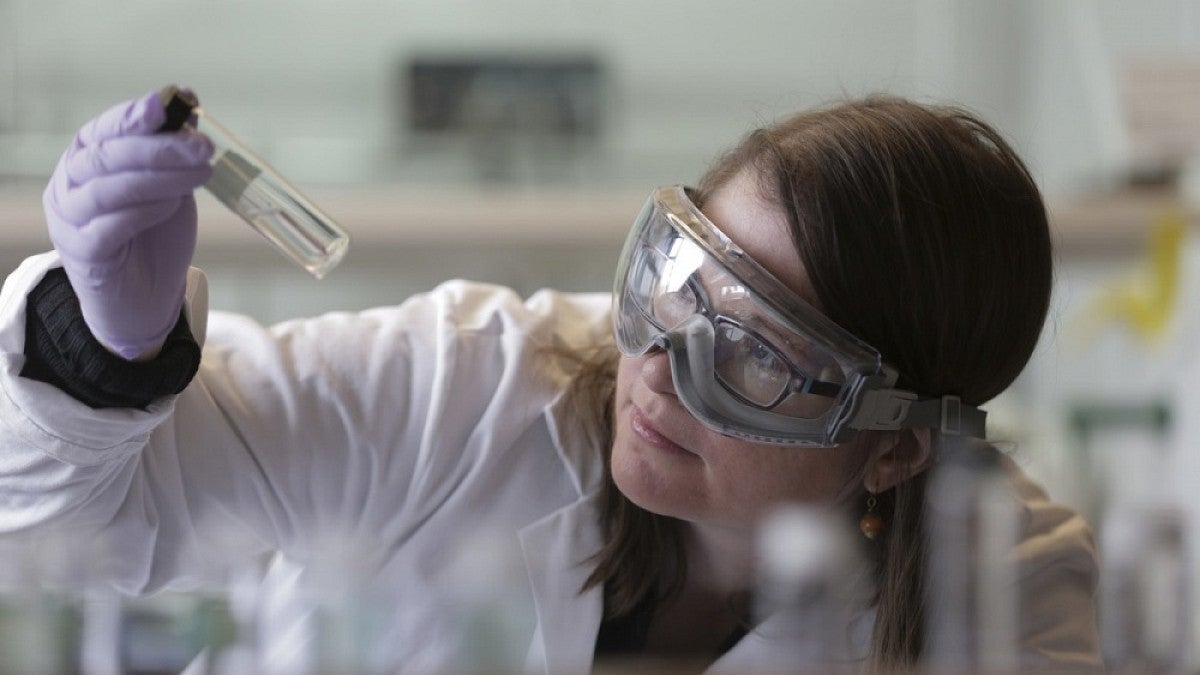A team of University of Oregon faculty members and administrators is making plans to apply for a grant from the National Science Foundation to help women pursuing academic careers in the fields of science, technology, engineering and mathematics.
The Advance program provides five-year, roughly $4 million grants from the NSF to help universities find ways to support and promote women in science, technology, engineering and math, known as the STEM fields. The grants will create avenues for universities to help guide or mentor individuals in advancing their career positions in different STEM fields, along with changing systems that historically have boxed STEM women and members of other underrepresented groups out from faculty and administrative positions.
Under the direction of Provost Jayanth Banavar and Vice President for Equity and Inclusion Yvette Alex-Assensoh, a UO Advance work group has been meeting regularly to prepare a grant submission, for which a preliminary proposal is due in April 2019.
“We are committed at all levels to make sure our university is representative when it comes to diversity and equity,” Banavar said. “A prestigious grant from the National Science Foundation’s Advance program would help us increase the number of women faculty in STEM and also help us retain talented faculty. The work group has my full support and I am excited that the members are helping the UO prepare to be in a position to compete for this important grant.”
An information session to gather input and seek faculty partnerships will be held Friday, Oct. 19 at 10 a.m. in the EMU Gumwood Room.
Alex-Assensoh said the work ahead in preparing for the grant submission will help bring more people from the university together to develop strategies that increase women, people of color and other underrepresented groups on the faculty.
“This is important work and it’s going to take a team effort,” she said. “Bringing more women into the STEM fields, and advancing equity across the campus, has to be something we work on together. I’m pleased with how much effort our work group is putting in and we all share a common goal. It’s all about changing the culture.”
There are three tracks for Advance grants: institutional transformation, adaptation and partnership. The UO will pursue the institutional transformation track, which supports the development of innovative organizational change strategies to produce comprehensive change within a nonprofit, two- or four-year academic institution across all STEM disciplines. These projects also are expected to contribute new research on gender equity in STEM academics.
The work group is led by Vickie DeRose, a professor of chemistry and biochemistry and associate vice president for the Division of Equity and Inclusion. Other work group members are: Tori Byington, assistant dean of professional development and student opportunities for the Graduate School; Charlotte Moats-Gallagher, senior advisor for the Division of Equity and Inclusion; Fred Sabb, senior advisor for the Office of Research and Innovation; Tom Fiorelli, a grant development research assistant; and Melanie Muenzer, associate vice president and vice provost for academic initiatives.
In preparation for submission, the work group is seeking input from campus stakeholders and is building partnerships with faculty members who are interested in developing new programs to promote gender equity at the university and in studying outcomes. The group wants to develop strategies that will bring about a culture of change when it comes to STEM faculty members, as well as examine through innovative research the hurdles women face and how to break down those barriers.
“These grants support both programming for institutional change and research on its outcome,” DeRose said. “In the process of supporting women, they are meant to support equity for all faculty.”
DeRose said the NSF definition of STEM includes many areas, such as political science and linguistics, that are sometimes considered as being outside of the “traditional” natural sciences.
—By David Austin, University Communications


